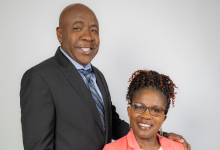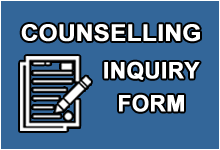Loving an abuser – friends and family of the victim
 Many of us may have heard a story about or know someone who has been in an abusive relationship. Some of the people reading this might even be able to identify as someone who has been in an abusive relationship themselves. For many people who find themselves in this situation, just leaving the relationship isn’t necessarily that easy. Outsiders who observe this conundrum are often confused and frustrated. Why would someone stay in a relationship where they are being made to feel that way? Why can’t they see that they deserve better?
Many of us may have heard a story about or know someone who has been in an abusive relationship. Some of the people reading this might even be able to identify as someone who has been in an abusive relationship themselves. For many people who find themselves in this situation, just leaving the relationship isn’t necessarily that easy. Outsiders who observe this conundrum are often confused and frustrated. Why would someone stay in a relationship where they are being made to feel that way? Why can’t they see that they deserve better?
There may be many reasons why a person would choose to remain in such a relationship (such as financial security or for the sake of children). Sometimes, though, the only major reason is that the victim still has an affection for the abuser. Dr. Joseph M Carver has written an article about this to help people understand both the situation and the ways that they can help someone who finds themselves there. The following is paraphrased from his work:
- In some cases your loved one may have been given a choice – the relationship or the family. Choosing the family will likely result in severe personal and social consequences – and so family will often come second.
- If the victim is being told that family and friends have it out for them (which you very well might), putting pressure on the victim will only serve to prove this. Pressure can come in the form of contacts, comments and communications.
- Contacts with your loved one may be met with hostility. If the victim has to endure a tirade of accusations from the abuser each time someone calls, you can imagine they might eventually come to resent the friction “you” are causing in their home. Girl-Talking-On-Phone
- It is best to establish predictable scheduled contacts, such as a weekly phone call. Random contacts may be viewed as an attempt to check up on the person. Talking regularly is important to maintain contact, offer help and also remind the abuser that family and friends are nearby. Don’t bring up the relationship unless it is brought up.
- Try to maintain traditional and special contacts with your loved one – birthdays, holidays, etc.
- Try to keep an open communication channel (phone calls, letters, cards, email).
- Don’t take victim’s behaviour personally – it may be a form of survival or a way to reduce stress. The victim needs to know they are not rejected because of their behaviour.
- Victims are often painfully aware of their situation and don’t need to be reminded. People will generally try to avoid those who serve to remind them of emotionally painful things.
- When a victim does attempt to open up to you, it is important not to jump too quickly to put a plan into action. Listen, and offer support such as reassuring that you will be behind any decision they need to make. Many victims will need an exit plan that takes months and at this point they may be just gathering information.
- Each situation is different and usually very complex. Sometimes counselling support is needed. A consultation with a mental health professional or an attorney may also be needed.
- Remain calm and await an opportunity to show your love and support – responding aggressively toward the abuser will usually result in additional difficulties for your loved one.
- In some cases, the victim might be someone you are already supporting financially or in another way (such as a teenage child or young adult). Though it may be difficult when you receive angry responses to phone calls or other contacts, withdrawing that support only makes your loved one more dependant on the abuser.
View the entire article – Love and Stockholm Syndrome: The Mystery of Loving an Abuser



















